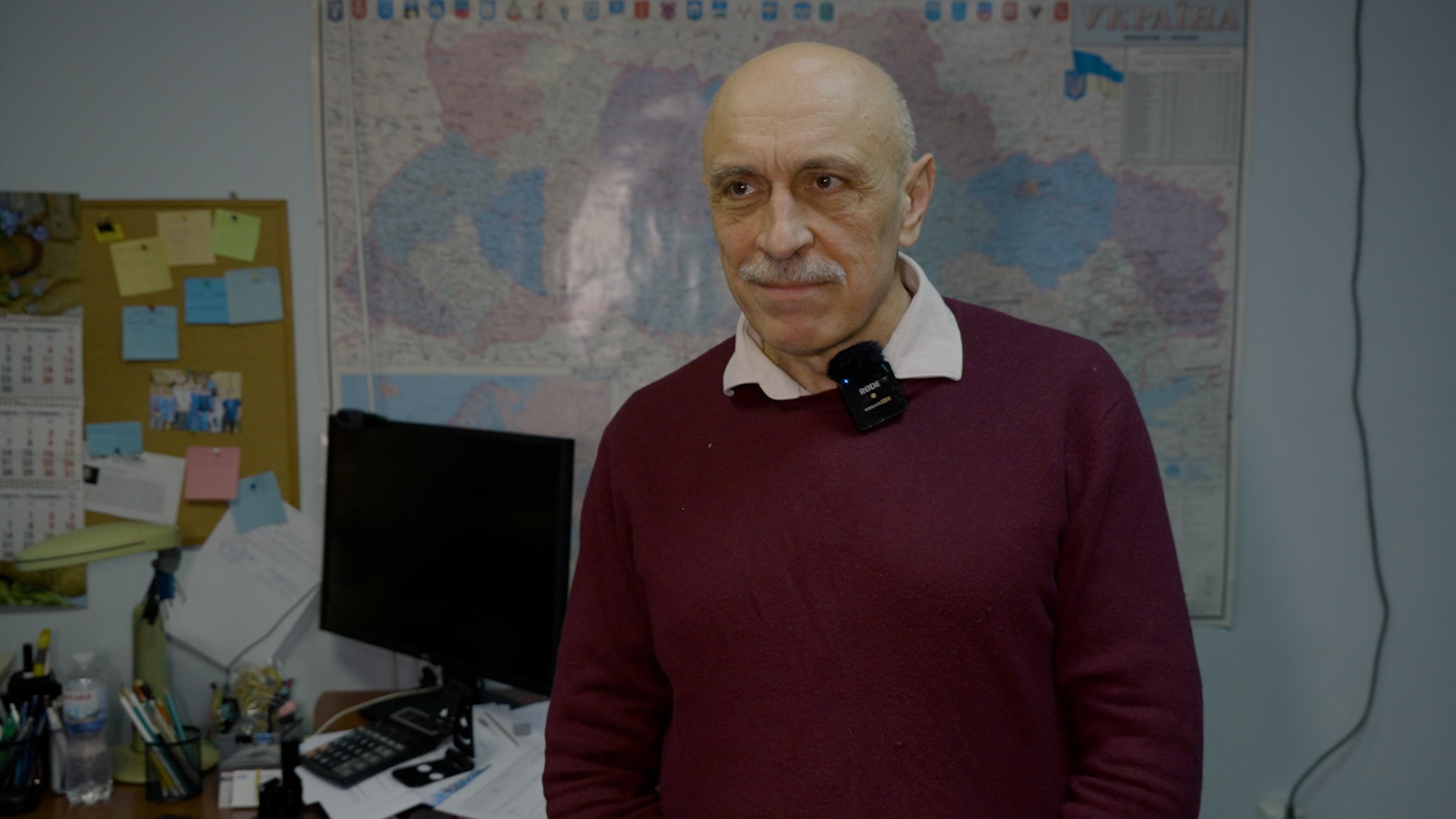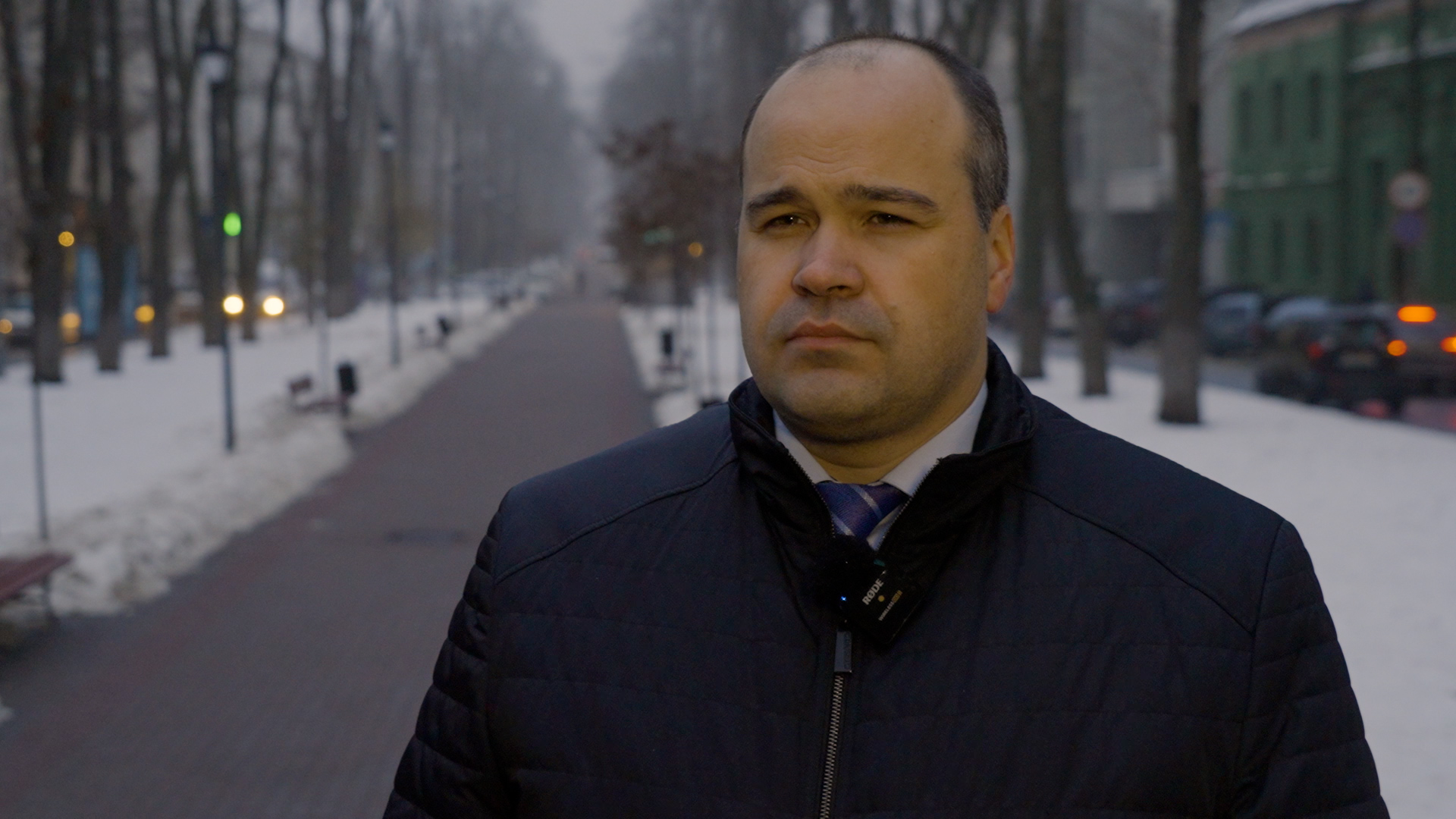This post is also available in: Bosnian
There are photographs on some, candies or cans of Coca-Cola on others, in accordance with Ukrainian custom to nurture ‘sweet’ memories of the dead.
Sergii Matiuk is the gravedigger. A hard man in his late forties, he is not one to waste words.
Walking slowly across the frozen, windswept graveyard, cigarette in hand, Matiuk points to where the remains of hundreds of civilians killed by Russian forces in March 2022 are interred. About a kilometre from the gate is a section containing 86 graves without names.
“Those are the unidentified,” Matiuk says. “We buried them there. There are 86. One is Russian.”
In short sentences, Matiuk describes his own captivity and the abuse he was subjected to, how Russian soldiers beat him, bound him with sticky tape and threatened to bury him. With his colleagues, he retrieved hundreds of bodies for burial, many of them neighbours, friends and acquaintances. Asked what, for him, would constitute justice, Matiuk just smiles and shakes his head.
There is no monument in the Bucha cemetery to those killed following Russia’s full-scale invasion of Ukraine in February 2022. There should be, Matiuk says. And what should be written on it, and how should future generations remember the crime committed in Bucha? Matiuk takes a long drag on his cigarette, glances around and replies: “I don’t know.”
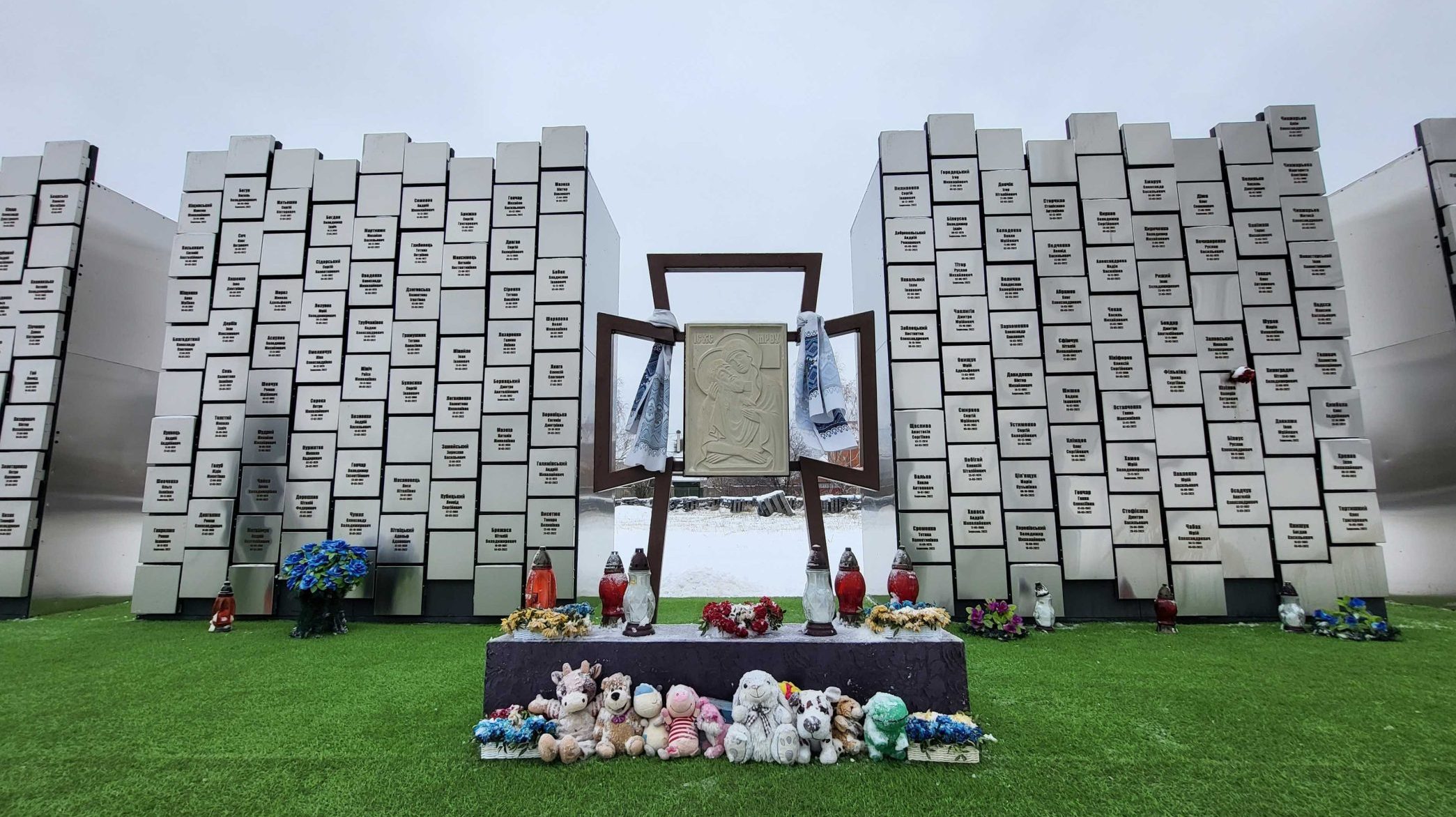
The killings in Bucha were just one of roughly 100,000 alleged war crimes committed by Russian forces and currently being investigated by Ukrainian prosecutors.
The International Criminal Court in The Hague has issued an arrest warrant for Russian President Vladimir Putin, while the Clooney Foundation for Justice is gathering evidence for cases that would be tried elsewhere on the basis of universal jurisdiction. But the biggest burden in processing war crimes will fall on the Ukrainian justice system.
People in Bucha, like Matiuk, and many other Ukrainians have high expectations from their judiciary, hoping for justice for war crimes even as war still rages.
One organisation helping to document such crimes is the Ukrainian human rights organisation Centre for Civil Liberties of Ukraine, a co-recipient of the 2022 Nobel Peace Prize.
The Centre’s director, human rights lawyer Oleksandra Matviichuk, said that according to a survey conducted last year, 65 per cent of Ukrainians say a failure to punish those responsible would be their greatest disappointment.
“It’s not just demand of human rights organisations,” said Matviichuk. “Accountability is the demand of millions and millions of people now suffering in this war, which Russia started against Ukraine.”
Precisely for that reason, Ukrainian judicial authorities have made it a priority to issue indictments, even if in reality they have little chance of getting their hands on the accused.
Currently, over a thousand war crimes trials are underway with the accused being tried in absentia, while dozens of cases have been brought against so-called ‘collaborators’ – individuals who remained on territory that fell to Russian forces and are accused by Ukraine of aiding the occupiers.
Both practices have been heavily criticised by international and local human rights organisations.
They say Ukraine must learn from the lessons of Bosnia and Herzegovina, that an excessive focus on war crimes without an effective strategy of transitional justice – including a methodological framework for processing war crimes as well as providing support for survivors and victims’ families, reparations, institutional reform, and memorialisation – will not have the desired results.
Failure to put victims at centre of strategy
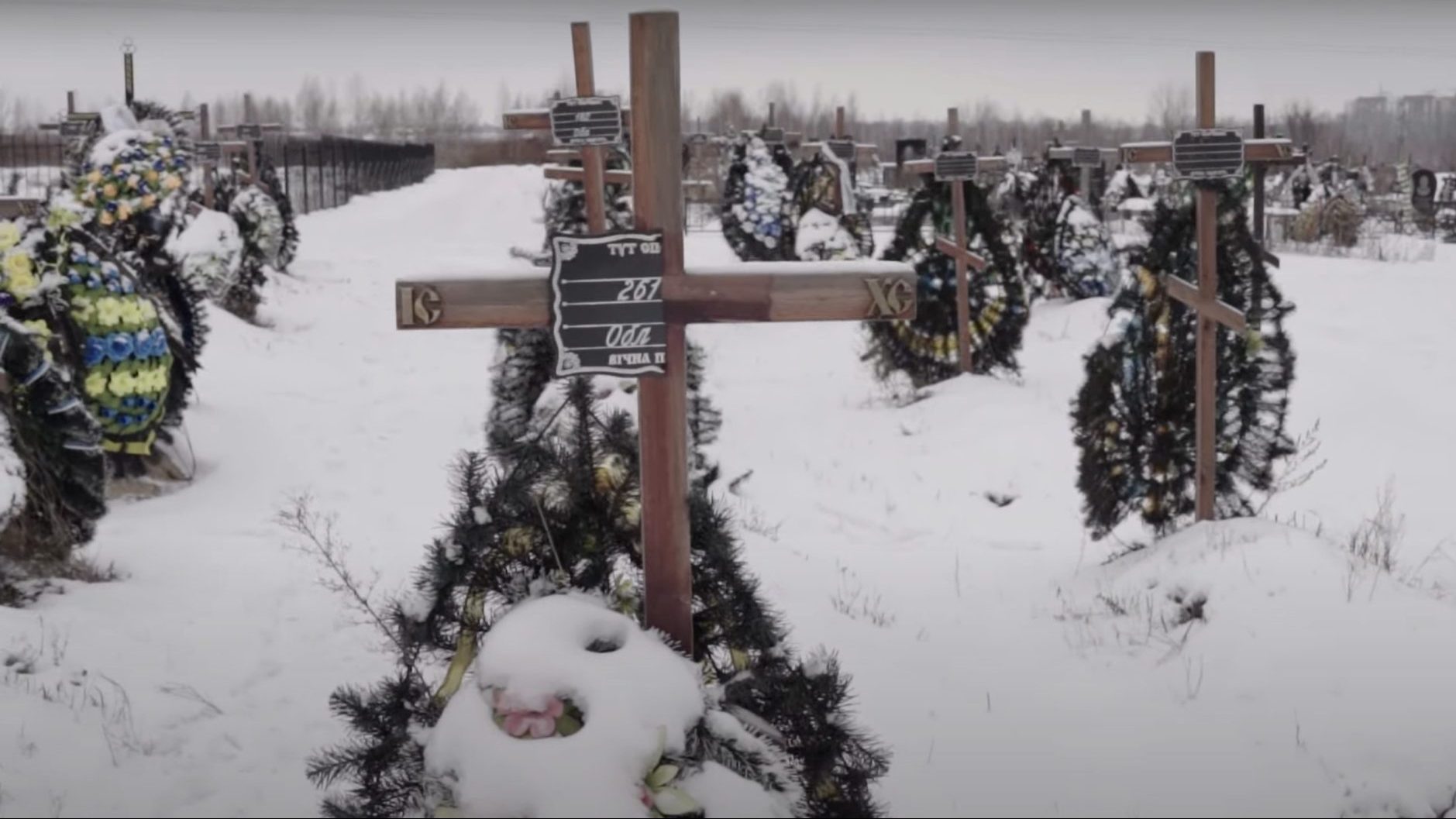
Ukraine began developing a transitional justice strategy after Russia annexed Crimea in 2014.
Already in June 2016, an international conference in Ukraine looked at the need to adopt a strategic approach based on securing the human rights of survivors and their families, as well as the reintegration and rehabilitation of Ukrainian society as a whole.
In the beginning, the process was led by the office of the ombudsperson, in cooperation with local non-governmental organisations, NGOs, with the aim of drafting a text that would be submitted to parliament. Two years later, in 2019, just as the text was being readied for MPs, a change of government led to the work being halted and integrated into the work of a special commission appointed by the president, by then Volodymyr Zelensky.
The Ukrainian Helsinki Human Rights Union was named as one of the members of the working group, and worked on the document until 2020, when it was submitted to Zelensky.
In expectation of the strategy’s adoption, work began on an action plan to implement it, only for the director of the Union, Oleksandr Pavlichenko, to be informed that a “parallel initiative” had been launched by the reintegration ministry – the drafting of the Law on the Principles of State Policy of the Transition Period, which would encompass elements of transitional justice in areas to be liberated from Russian occupation, at that point a reference to the eastern Donbas region and the Crimean peninsula.
“This document represents basically the position of our authorities – about how to bring order to occupied territories that are under Russian control,” said Pavlichenko. “But there are also segments of transitional justice. In fact, we have a competition and parallel between two sets of laws. And we still have to adopt a strategy, an approach to transitional justice.”
The draft was finished in 2021; and the Venice Commission, a panel of constitutional law experts under the Council of Europe human rights body, said it “falls short” in focussing only “on the armed aggression of the Russian Federation against Ukraine and not on individual victims”.
“The right to truth is victim-oriented,” the Commission wrote, so the “primary focus” should be on providing information to victims.
On the other hand, said Pavlichenko, the transitional justice strategy takes as its starting point the victims and their needs. He said the working group looked closely at Bosnia’s own draft strategy on transitional justice.
Director of the Helsinki Committee Oleksandr Pavlichenko. Photo: BIRN BiH
Work began on Bosnia’s strategy in 2010, with the input of victims’ associations, experts and NGOs, but a lack of political meant it has never been adopted by the government.
“A universal idea that could by applied in a universal manner to all kinds of crime and break with the past cannot be accepted if one looks at who was sitting and who sits today in the institutions,” legal expert Goran Simic, who was part of the working group, told BIRN BiH in 2021.
“The Strategy cannot be accepted by members of the Council of Ministers and those sitting in parliament who do not want confirmation of the precise number of victims, their names, and for it to be confirmed where the detention camps were, who created them, or for all war crimes cases to be brought to a conclusion.”
Pavlichenko sees a similar lack of political will in Ukraine today.
“The biggest precondition for the adoption of such a document is political will, and we don’t have political will,” he said. “Those in power simply aren’t that interested in human rights issues,” but rather in making sure that the institutions of justice can impose their authority on the occupied territories.
Zelensky’s office did not agree to an interview or respond to written questions submitted by BIRN BiH.
In October 2019, Zelensky promised a strategic approach with elements of transitional justice when it comes to the reintegration of the Donbas and Crimea.
“There will never be the only solution that will satisfy everyone,” he said. “But we have to find an option that will be approved by the vast majority. Society must understand and agree with the conditions of reintegration of Donbas and Crimea, with the principles of transitional justice. The lack of common vision paralyses our movement.”
No ‘strategic vision’ or capacity
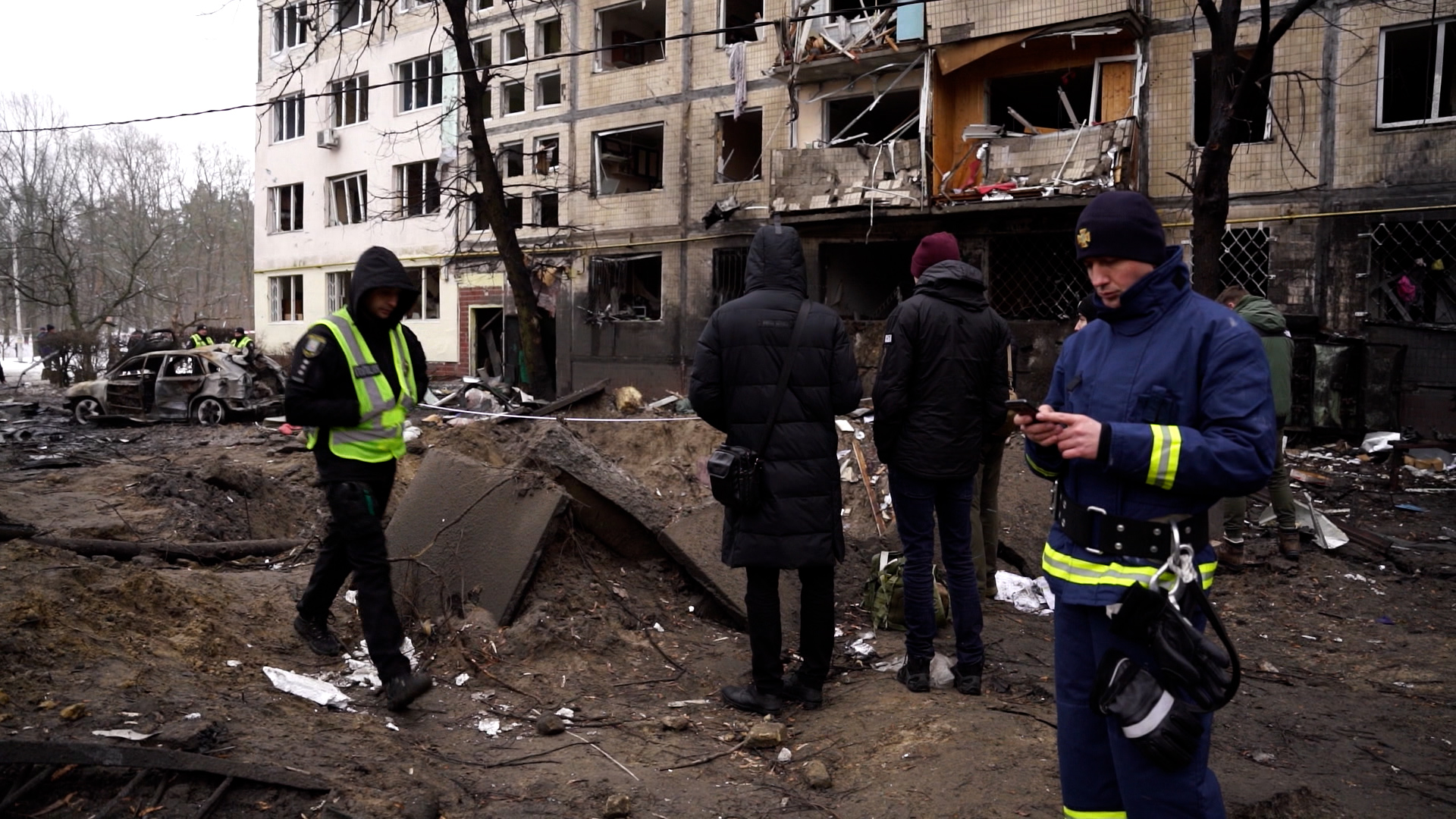
According to Pavlichenko, the draft strategy developed since 2016 was shared with a number of international partners. But the most prominent international organisation dealing with transitional justice, the International Centre for Transitional Justice, ICTJ, was not among them.
Commenting on the draft Law on the Principles of State Policy of the Transition Period and the approach in Ukraine in general, ICTJ deputy executive director Anna Myriam Roccatello expressed concern about an “over-focus on prosecution”.
Roccatello was particularly critical of Ukraine’s pursuit of so many trials in absentia, as well as cases concerning alleged collaborators.
Cases against civilians who in some cases simply remained living on territory under the control of Russian armed forces, going about their daily business, represents a violation of their human rights, said Roccatello, comparing them to “lynching”.
Such a practice may be “inevitable in a conflict situation”, she said. “But I think Ukraine could do better and could be helped to do better.”
When it comes to Russian soldiers being tried in absentia, many of them are never even informed of the charges against them, calling into question their right to a defence.
In these cases, victims and their families often have no support whatsoever, said Roccatello, and often struggle to follow what is happening.
“We constantly bring up the issue of the victims,” she said. “Especially because justice is often equated with criminal prosecution, but reparation and assistance to victims is also a part of accountability. And although Ukraine has been invaded, this doesn’t exempt the Ukrainian state from an international obligation to provide reparations.”
Klaus Hoffman, a former prosecutor at the International Criminal Tribunal for the former Yugoslavia, ICTY, is part of a group – Atrocity Crimes – advising Ukrainian justice officials on how to collect evidence, conduct interviews and take statements, as well as take a strategic approach to cases based on the experience of the 1992-95 war in Bosnia.
According to Hoffman, Ukraine has a number of problems in terms of criminal legislation concerning war crimes, including the fact indictments cannot be issued for crimes against humanity or based on command responsibility.
He expressed concern at the speed with which Ukraine began issuing indictments against soldiers in absentia; the fact that the accused are often not informed can lead to rulings being quashed, as was the case in Croatia in a number of trials of former members of the Yugoslav army.
Then there is the question of the right to a defence, and finally the fact the best evidence, the kind that can lead to cases against more senior officials, often only comes with time.
Mykola Mazur, judge of the Supreme Court of Ukraine. Photo: BIRN BiH
“It may be a difficult message to hear for Ukrainians, but it is necessary, that it may be better to wait for prosecutions until the end of the war and to focus on gathering evidence,” said Hoffman. “This would allow a focus on gathering as much evidence as possible.”
A strategic approach in selecting cases is currently vital for Ukraine, said Iva Vukusic, a researcher at the University of Utrecht in the Netherlands and who has spent years following war crimes trials in Bosnia.
No country in the world has the capacity to investigate 100,000 incidents simultaneously, said Vukusic. Besides a lack of capacity, expertise and equipment, there is also a lack of coordination.
“Many NGOs conduct trainings, donors support hundreds of projects, and many actors are documenting – but I’m not very sure there exists a strategic vision of what we expect from all those actors and how we are to proceed in terms of investigations and trials,” said Vukusic.
Recently, said Pavlichenko, it has become apparent that victims and their families have less and less interest in participating in trials in absentia given the questionable benefit to them.
“The survivors are not interested in participating in such mostly theoretical proceedings and to lose… their resources almost for nothing for them, without having a concrete impact that will bring them, let’s say, bring the perpetrators to justice.”
The Ukrainian justice system is already struggling with capacity; currently, more than 30 per cent of judge and prosecutor posts are vacant.
In one court in Irpin, not far from Kyiv, each judge has between 1,000 and 2,000 cases on his or her desk, including a number of war crimes cases.
“There is no judge in the world which could handle such a workload,” said Hoffman. “This is why we are hopeful these positions will be filled swiftly.”
Though conceding some issues with efficiency, Supreme Court judge Mykola Mazur said Ukraine had made great progress in processing war crimes trials, and that the law would soon be amended to allow cases to be brought based on command responsibility.
“From analysis of court rulings we see that the victims of war crimes really do participate in cases and provide their testimony,” Mazur told BIRN BiH. “And thanks to that, the truth is coming out, and it is precisely the testimony of the victims of these crimes that is the key evidence in cases of war crimes.”
Pavlichenko, however, was less optimistic about judicial reform. Ukraine, he said, needs a “proper, independent and professional judiciary”. That would resolve “99 per cent of human rights violations”, he told BIRN BiH. “Now, the judiciary itself is the problem.”
Bosnia a ‘living example’ of how not to do it
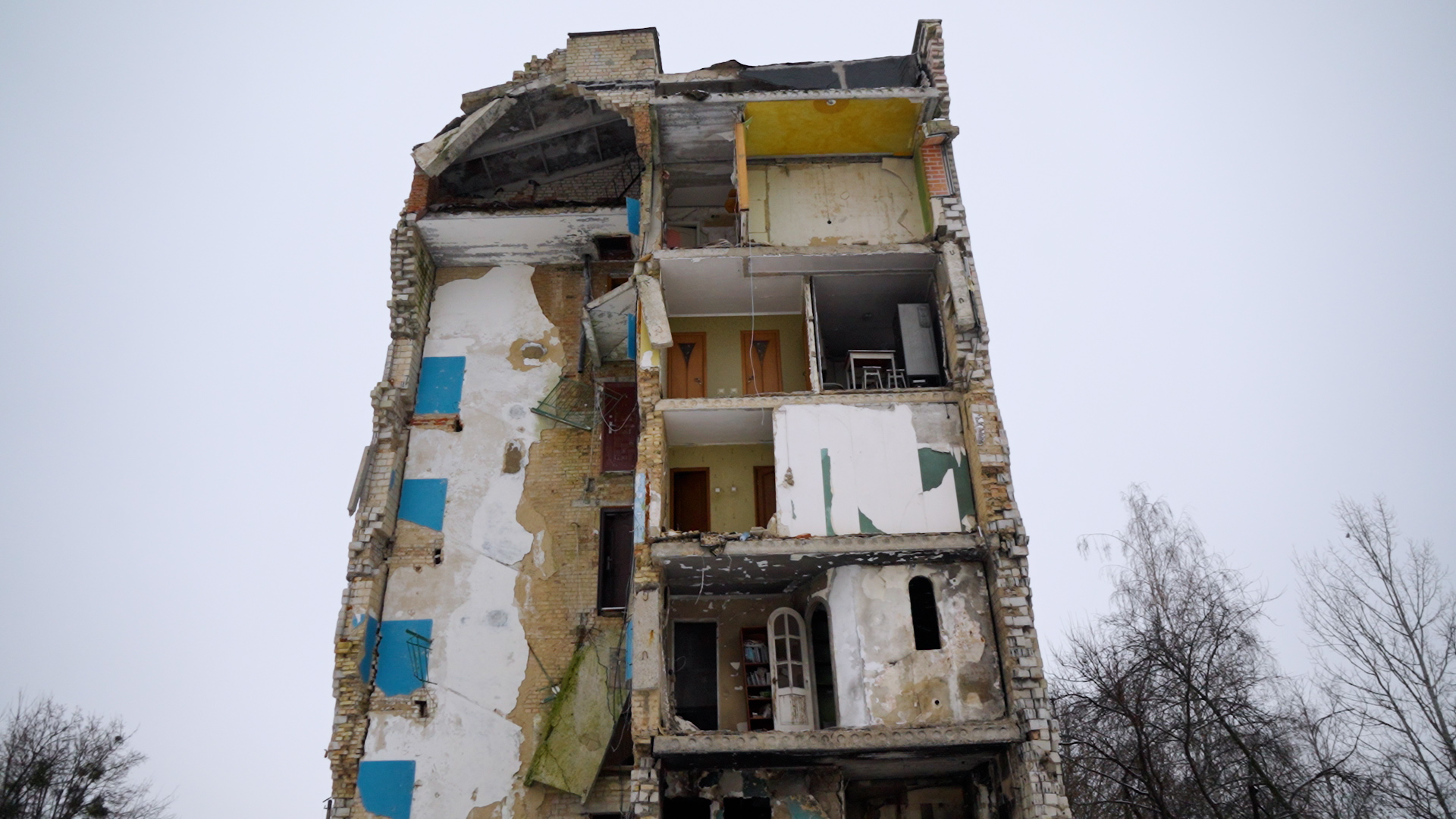 Borodyanka. Photo: BIRN BiH
Borodyanka. Photo: BIRN BiH
Roccatello, from the ICTJ, warned that if Ukraine continues on the same course, it will end up in a similar situation to Bosnia, where an excessive focus on processing war crimes will not result in greater social cohesion.
“We are still dealing with the legacies of that approach in Bosnia,” said Roccatello, who lived for almost a decade in the Balkans.
In Bosnia, war crimes indictments have been issued against more than 1,000 individuals, but this is only a drop in the ocean in terms of securing justice for all crimes committed on its territory between 1992 and 1995.
Of the many hundreds of cases that confronted Bosnia after the war, the vast majority remain unprocessed, said Vukusic.
“The experience of the former Yugoslavia, and Bosnia and Herzegovina, shows the importance of understanding and accepting the fact that the majority of perpetrators simply won’t ever find themselves in court,” Vukusic told BIRN BiH. “Not one judiciary can properly process tens of thousands of people, even if they were within reach, as in able to be arrested – and right now that isn’t the case.”
“Trials for war crimes are extremely important and it is worth working on them dedicatedly for years. But they are not the only measure or the only solution. It is important also to remember that since not all survivors will find justice in court, other measures must be actively considered, planned and implemented and that can help in healing the wounds caused by violence, and offer support and hope to those who have to build lives from the ashes of what they lost.”
In Vukusic’s opinion, that should include psycho-social support for survivors and veterans, reconstruction of homes and businesses, finding the remains of victims that can be returned to their families, establishing the facts, erecting memorials, and creating an open archive of war crimes trials.
And all of that should be done in coordination, said Matviichuk, in order to address the real needs of ordinary people.
“When you work directly with victims of this war, you understand that they see justice very differently,” she said.
For some, justice means seeing the perpetrator put behind bars, for others it means securing compensation, for others still it is simply about getting to the truth, or public recognition that what they went through was not only immoral but also illegal.
“All of that must be part of a comprehensive mechanism of transitional justice, if we are to address all the needs of our citizens,” said Matviichuk. “That is something we have to do as a state.”
Adopting such a document, according to Simic, would be a major step forward. In the case of Bosnia, he said, it is clear what happens in the absence of courageous leadership and political will.
“When the conflict ends, they will understand what we have also understood,” he said.
“In war, you at least know who is on the other side of the rifle sights… For them, as it was for us, the real difficulties will start when some peace agreement is signed and when broken connections have to be rebuilt, criminals put on trial, monuments raised, reparations paid.”
“Bosnia is a living example of how not to do that and how it is possible to still be at war 30 years after the war has ended.”
